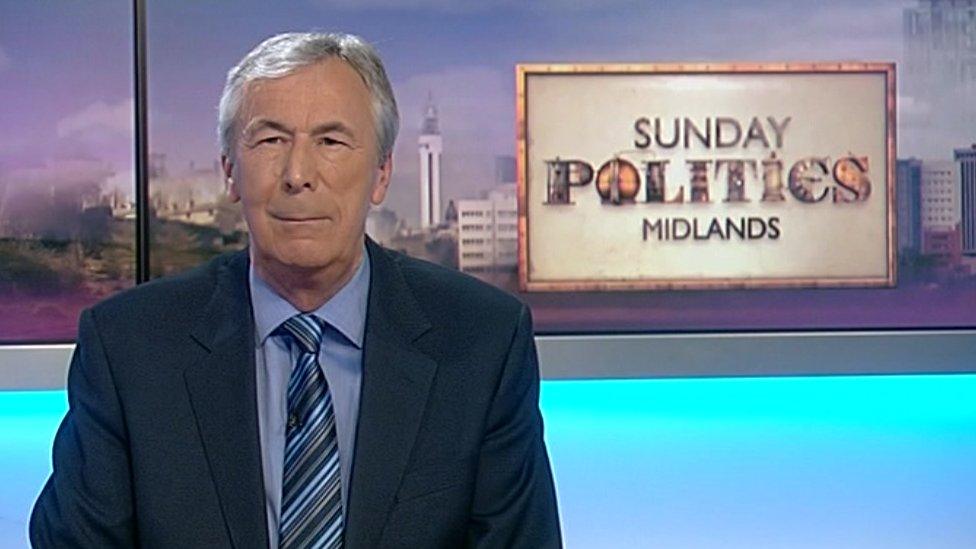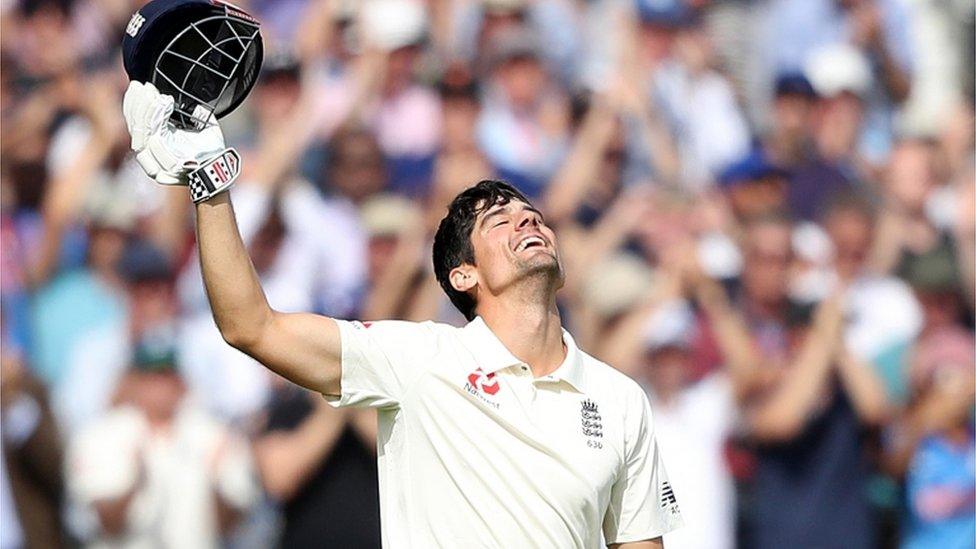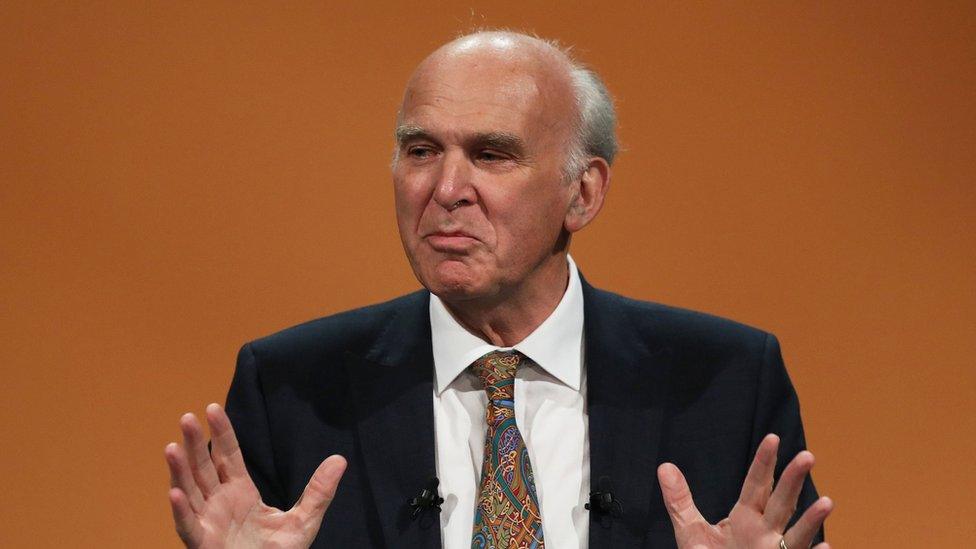Can Cable reconnect Liberal Democrats to Midlands?
- Published

Sunday Politics Midlands returns with a new format on 16 September
It's not just cricket
When England's master batsman Alastair Cook told us he would retire from international cricket after the fifth and final test match against India at the Oval, he triggered a certain amount of wry amusement in cricketing circles: after his run of disappointing scores this summer, could this really be his way of forcing the selectors not to deny him his moment of glory by dropping him from the final game?
In the event, his last hurrah turned out to be a triumph. He went out in style with a glorious century, his 33rd, to round-off his 12-year international career and secure his place in the pantheon of all-time greats of the game.
Whether or not the Liberal Democrat leader, Sir Vince Cable, will enjoy a similar fairytale finale to his own political Indian summer we have yet to find out. What's more, it may take significantly longer than we had originally expected.
Speculation about how long the 75-year-old former business secretary could survive as as Liberal Democrat leader was effectively silenced by an announcement of his own which came straight out of the Alastair Cook textbook.
"No need to push me," he said, "I'm on my way and won't be around".

Alastair Cook's last hurrah ended in triumph as he finished his international career with a century
But he did say he intended to "see Brexit through".
And that could turn out to be as long as a piece of string. What with all the talk of "implementation" and "transitional" periods, his new determination may even increase, rather than diminish, the chances that he will celebrate his 76th and 77th birthdays in the leader's office next May and perhaps in 2020 as well.
But how does his call for "an exit from Brexit", with another referendum on the terms of the deal, or no-deal, go down in our part of the country which registered a bigger proportion of Leave votes than any other?
The message reverberating across the Midlands' airwaves from callers to our BBC local radio stations is that most listeners here are fed-up with the tortuous, tortured, political in-fighting and just want our leaders to get on with it and deliver the Brexit that the majority of electors voted for.
Stony ground
Sir Vince's approach doesn't exactly look like an easy sell in an area of England which has long been stony ground for the Liberal Democrats: as MP for Twickenham, is he demonstrating yet again how the metropolitan elite is out of touch with people in places like Stoke-on-Trent, the Black Country and east Birmingham who tell us they feel ignored and left behind?
Before the 2015 general election the Liberal Democrats held just three of our region's 63 seats in Parliament: Cheltenham, Birmingham Yardley and Solihull. Then they lost them all. In Solihull, it's the Green Party who are now the official opposition to the Conservatives. The Lib Dems do at least retain control of one local authority, in Cheltenham. But in our biggest council, Birmingham, they can muster just eight of the 101 councillors in a city which they ruled, in coalition with the Conservatives, for eight years up until 2012.
So how is Sir Vince to set about rebuilding his party's support here?

Sir Vince Cable is preparing for his annual conference opening in Brighton this weekend
Given that the Liberal Democrats and the Greens seem so often to be fishing in similar electoral ponds, should they at least talk to each other about some sort of electoral arrangement or even, dare I say it, a pact?
As our two biggest parties show signs of fragmentation, Sir Vince is inevitably linked with talk of a possible realignment of the predominantly Europhile centre-left of British politics. The Midlands has one of the biggest concentrations of so-called "moderate" Labour MPs who are increasingly at odds with their leadership and threatened by Corbynite Momentum activists in their own constituencies.
What overtures has Sir Vince made to them? Or they to him? If not here, where?
Questions for Sir Vince
As he prepares for his annual conference opening in Brighton this weekend, these will be among the questions I will be raising with him. For the record, I'll be talking to each of the main Parliamentary party leaders in the run-up to their respective conferences.
To find out how he answers them, join me for the first edition of our new series of Sunday Politics Midlands. It's not just a new run, but a new format as well.
For the first time, we have entirely our own show, a stand-alone programme following directly after Andrew Marr. It will be a longer programme too, although I hope it will not feel like it! We're extended from just over 20 minutes to half an hour.
Joining me in the studio this week will be James Morris, the Conservative MP for Halesowen and Rowley Regis and party vice chair; Jack Dromey, Labour MP for Birmingham Erdington and Shadow Work and Pensions Minister; and Gisela Stuart, former Labour MP for Birmingham Edgbaston and Chair of Vote Leave. She now chairs the Change Britain campaign, aiming to make sure the version of Brexit she supports is delivered to the British people.
And I hope you will join us too, at 11.00 BST on BBC One this Sunday morning, 16 September 2018.